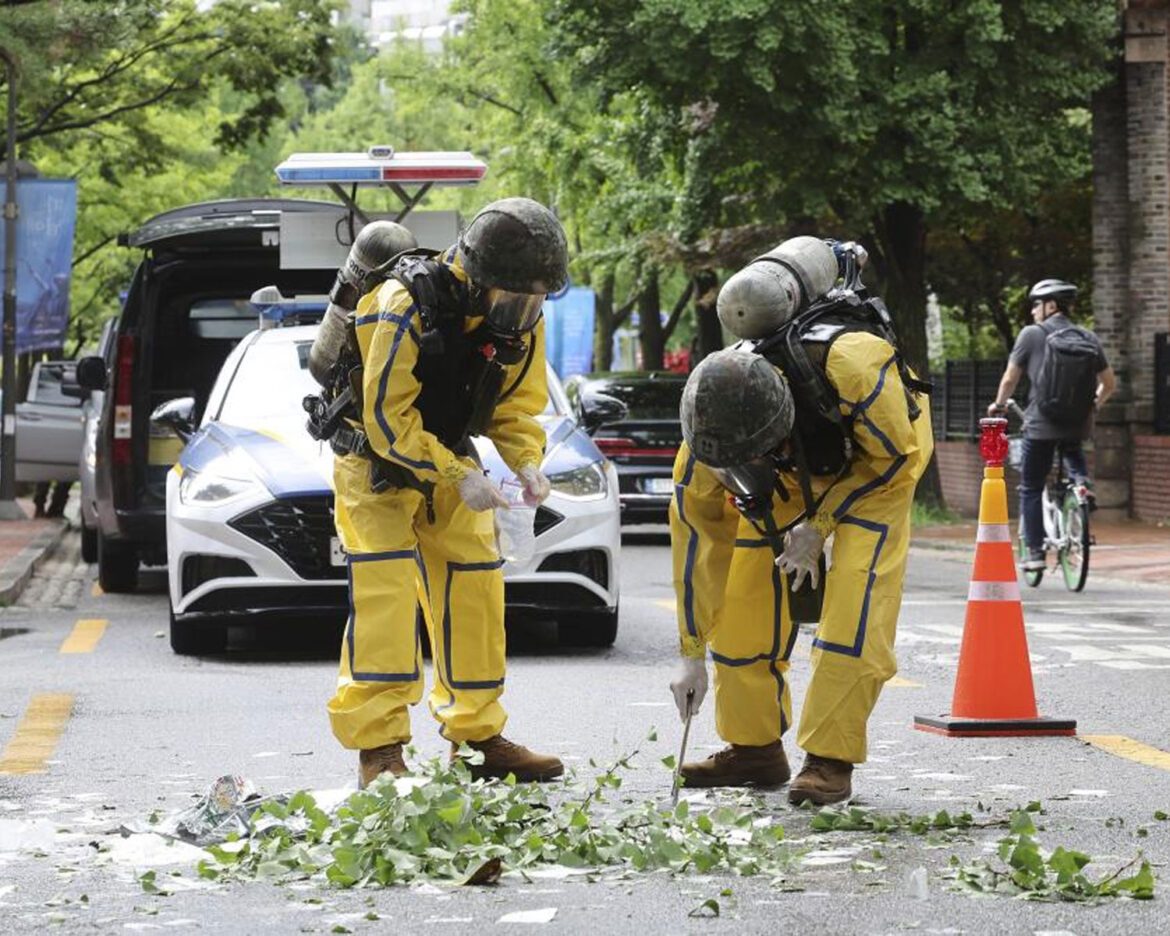A North Korean balloon carrying trash fell on the South Korean presidential compound in Seoul on Thursday, marking the second such incident in recent months. The debris raised concerns about the vulnerability of critical South Korean sites amid ongoing tensions with the North.
The South Korean presidential security service reported that the balloon, launched from North Korea, burst over the compound, scattering rubbish. Fortunately, no hazardous materials were found, and no one was injured. It remains unclear whether South Korean President Yoon Suk Yeol was present during the incident, although he was scheduled to meet Polish President Andrzej Duda later in the day.
This balloon incident is part of a Cold War-style psychological campaign resumed by North Korea in late May, involving the launch of trash-filled balloons over the border. A similar occurrence in July caused no harm but raised alarm. North Korea claims these actions are in retaliation for alleged South Korean drone drops of propaganda leaflets over Pyongyang.
Reports indicate that the latest balloon also carried leaflets criticizing President Yoon and his wife, Kim Keon Hee. These leaflets were scattered across the Yongsan district, where the presidential office is located. There are also concerns that North Korea is utilizing GPS technology to improve the accuracy of their balloon drops, though experts remain skeptical about their technological capabilities.
In response, South Korea has resumed propaganda loudspeaker broadcasts along the border. This escalating exchange comes amid increased North Korean missile testing and closer military ties with Russia.
Trash Balloons Escalate Tensions
Since May, North Korea has launched thousands of balloons carrying bags of trash into South Korea, disrupting daily life and intensifying tensions between the two nations. These balloons have caused disturbances at Seoul’s Incheon airport, sparked a fire on a residential building’s roof, and even landed on the presidential palace grounds. They have hit cars, farms, neighborhoods, and schools, with at least 1,300 balloons reported across most of South Korea.
The balloons have contained a variety of trash, including cigarette butts, plastic bottles, and worn clothing. Some items even featured slashed clothing originally provided by South Korea. Despite the deployment of military explosives units and biological warfare teams, South Korean authorities have found no hazardous substances so far.
Kim Yo Jong, the sister of North Korean leader Kim Jong Un, described the balloon deliveries as “gifts of sincerity” for South Koreans, further highlighting the propaganda-driven nature of the campaign.



